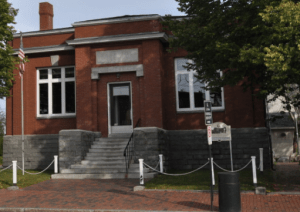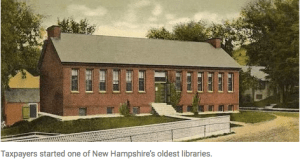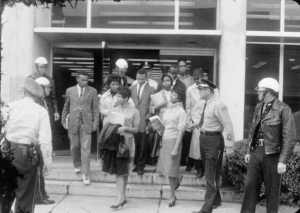Public Libraries for Everyone? Not So Fast . . .

“Travel New England and you are bound to see Carnegie libraries”
Charlene D’Avanzo: Earlier this week I spoke to a great group of readers at the Baxter Library in Gorham, Maine. My talk – “why a scientist who never wrote a word of fiction became a mystery writer” is one I’ve given many times. Like many writers, I love libraries and am delighted to support them.
U.S. public libraries, which have been around for nearly 200 year, have an interesting history. The first U.S. tax-supported library was in New England – Peterborough New Hampshire – in 1833. Reverend Abiel Abbot proposed that the new library be owned by the people and free to all of the town’s inhabitants. Inspired by Abbot’s idea, in 1849 New Hampshire was the first state to pass a law authorizing towns to raise money to establish and maintain their own libraries.
Philanthropists, especially Andrew Carnegie, helped increase the number of publiclibraries in the late 19th century. Carnegie built over 2000 libraries in the US and many more in the British Commonwealth. By 1919 there were 3,500 in the U.S., nearly half of them known as “Carnegie libraries”. Carnegie believed in giving to the “industrious and ambitious; not those who need everything done for them, but those who, being most anxious and able to help themselves, deserve and will be benefited by the help of others”.
 Travel New England and you are bound to see Carnegie libraries. In Freeport, for example, the previous library is a classic example.
Travel New England and you are bound to see Carnegie libraries. In Freeport, for example, the previous library is a classic example.
I’ve spent pretty much my whole life in New England, where libraries were, I assumed, for everyone, everywhere. Unfortunately, libraries in the south were segregated until very recently.
 When we think about the civil rights movement many of us picture, I assume, Rosa Parks refusing to give up her seat or Martin Luther King Jr.’s March on Washington. Lesser known is the issue of library segregation, and the great lengths that college-aged students went to in order to integrate them.
When we think about the civil rights movement many of us picture, I assume, Rosa Parks refusing to give up her seat or Martin Luther King Jr.’s March on Washington. Lesser known is the issue of library segregation, and the great lengths that college-aged students went to in order to integrate them.
In his memoirs, Justice Clarence Thomas said he used a black library as a boy. The public library system was finally desegregated by the 1964 Civil Rights Act that outlawed discrimination in public places like public libraries. It is truly a shocking and sad reality that library desegregation took place so recently in our country.
Lea Wait's Blog
- Lea Wait's profile
- 509 followers



